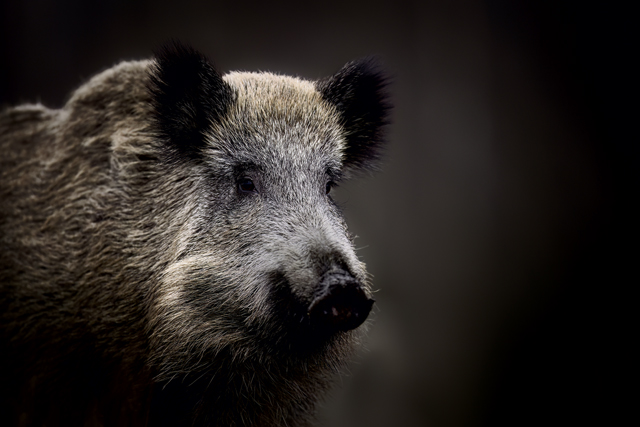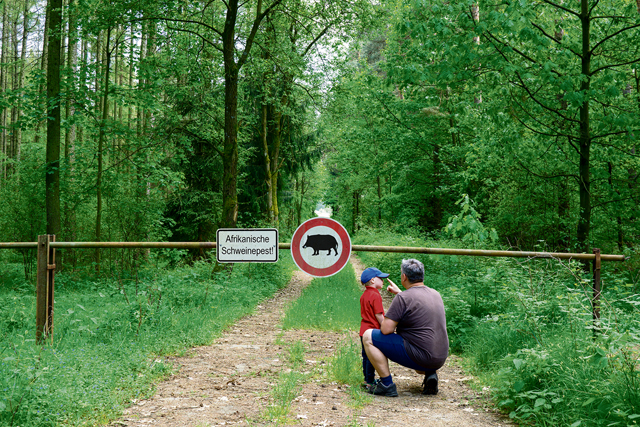
Several cases of African Swine Fever have been confirmed in domestic pigs and wild boar across the European continent the past couple of years. African Swine Fever is a contagious viral disease that is isolated to domestic and wild pigs. However, it is not a threat to human beings or household pets, including cats and dogs.
According to German Public Health officials, the current epidemic of African Swine Fever started in 2007 in the country of Georgia. It spread to neighboring countries and in 2014 entered the European Union. In 2018 it even spread across Asia to China. In 2020 the first case in wild pigs was found in Germany near Poland in the German state of Brandenburg. Until recently, control measures have generally kept it in those states that border Poland. There have been outbreaks that have been resolved in other states since 2020.

“African Swine Fever is not, I repeat, is not a danger to humans and has never been found in other animals,” said Army Lt. Col. Shawn Basinger, Director, Veterinary Services Division Public Health Command Europe. “There is absolutely no reason for anyone living in western Europe to be worried about contracting African Swine Fever. Humans cannot get African Swine Fever, not even by eating pork from an infected pig or wild boar. Unrelated to African Swine Fever, when cooking pork, you should always ensure it is properly prepared/cooked to prevent other food born illness (145 degrees Fahrenheit for whole pork, 155 degrees Fahrenheit for ground pork products).”
Wildlife officials recommend that if someone comes across a dead, or sick, wild boar on a U.S. military installation, they should immediately report it to their local garrison command or local U.S. Army military veterinary clinic on base.
“Whatever you do, please do not approach or touch the animal,” added Basinger. “While it won’t necessarily make you sick, it does, however, increase your chances of spreading the virus. Finding a sick boar in the wild is rare, more than likely, a dead carcass would be found. In either case, if a dead or sick wild boar is found off a military installation, you should call the local German District Administration Veterinary Authority in your area.”
According to animal disease experts, human behavior can play an important role in spreading the African Swine Fever into unaffected areas and across country borders.
“African Swine Fever survives very well in the environment and the virus can survive on your clothes, shoes, car tires and other material,” Basinger added. “When the virus crosses country borders, however, it can have devastating economic consequences on the pork industry or domestic pig farms. As such, the most common form of virus transmission is directly between infected pigs.”
As a note of caution, Public Health officials recommend against shipping pork products outside areas where African Swine Fever is found.
“Please do not ship pork, or pork products, out of local affected areas, and especially, don’t ship it out of the affected country,” added Basinger. “As a side note, the German government requires dogs be on a leash when walking in affected areas. This is primarily to prevent wild boar from getting spooked and running into other areas that are free of disease.”


